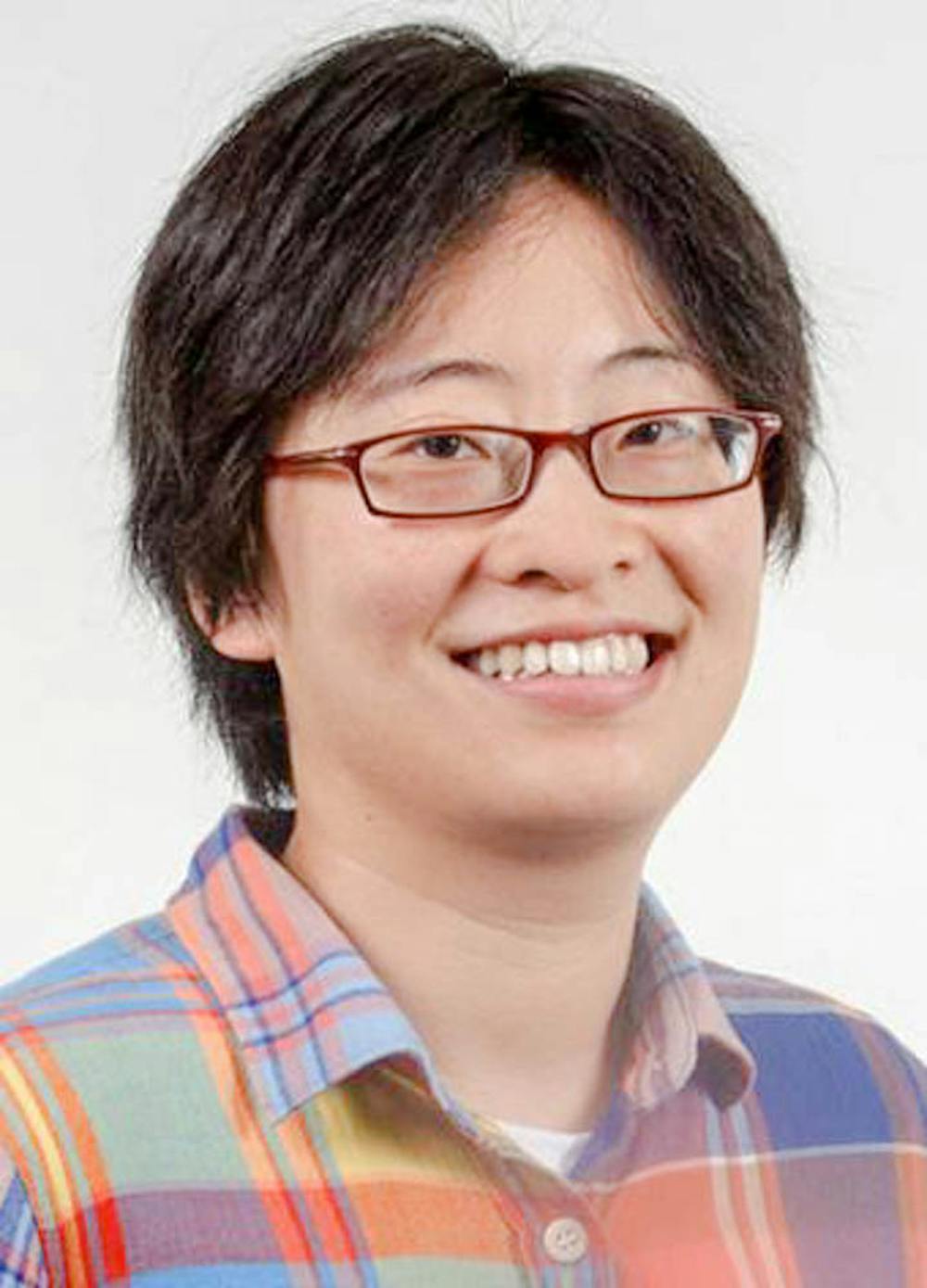Assistant Professor of Mathematics Melody Chan won a Sloan Research Fellowship, an award that recognizes 126 promising young scientific researchers from the United States and Canada. Chan is one of 20 researchers in the field of mathematics to win the award in 2018 and will receive $65,000 to be spent over a two-year term in support of her research.
Chan is “thrilled and honored to receive the award.” It’s particularly special to her because “in the academic career path there aren’t always a lot of positive markers like that,” Chan said. “So it’s really fun to be able to celebrate.”
Dan Abramovich, chair of the mathematics department and winner of the Sloan Research Fellowship in 1996, nominated Chan for the award. “She has proven herself to be a very productive researcher in an area that is quite active nowadays,” Abramovich said. Chan’s area of research bridges the subjects of combinatorics and algebraic geometry, “so it creates some interconnections between subjects (and) some conversations between people in slightly different areas of mathematics,” Abramovich added.
Chan stressed the collaborative aspect of math and plans to use the grant money to travel and work with others in the field. “The way I like to do math, I like to do it with friends (and) with collaborators, so it’ll be really nice to have flexible funding” to go to conferences and visit other people, Chan said. She also hopes to bring other mathematicians to the University to “generate some increased mathematical activity around Brown.”
This fellowship, which has been awarded by the Alfred P. Sloan Foundation since 1955, is geared toward early-career researchers in eight scientific and technical fields who have shown distinguished performance and a potential to advance their areas of research, according to the foundation’s website. Candidates must be nominated by a department head or senior researcher at their institution and are then reviewed by an independent committee of experts in the field.
In general, each award committee looks for “people that we think are going to have the biggest impact in their field over their careers,” said Adam Falk, president of the Sloan Foundation. This includes doing research that’s not just, “high quality, but should be groundbreaking in some new directions. It also helps to be a great communicator about your work,” Falk added.
The Sloan Fellowship is “meant to fill a kind of gap that a lot of young people face in terms of getting funding really early on,” Falk said. “Our belief is that if you invest in really good young people early in their careers, you can have a disproportionate effect on what happens to them for the rest of their careers.”
During Abramovich’s tenure as head of the mathematics department, every researcher the department has nominated has won the award. “This doesn’t speak about us, so much as the people we are successful in hiring,” Abramovich said.
Chan is the only professor from the University to receive the award this year. Associate Professor of Computer Science Tim Kraska was awarded the fellowship in computer science last year, as The Herald reported.
While the fellowship has been around for over 60 years, it is not meant to be static, Falk said. The fellowship started with only three fields in 1955: physics, chemistry and math. Over the years, the foundation has added more fields as they have gained prominence. Although the foundation doesn’t have any plans to add a new field right now, they are always looking out for areas where people are doing interesting work, Falk said.





